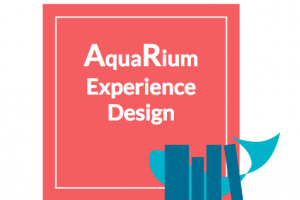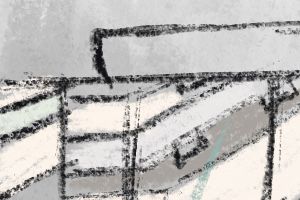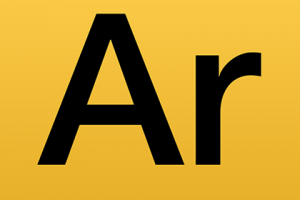|
Seeking mentorship and advice is a key activity in a graduate student’s career development, specifically when transitioning from academia, and looking for job opportunities. While multiple sources of career-related information are available to graduate students, there are multiple benefits in getting this information through a mentor. This project presents UI enhancements to Peoplegrove for GT-Connects, to improve the mentoring experience of mentors and mentees. Website: |
In this project, we analyze blocking mechanisms on social media. We perform a comparative analysis of different technologies and socially curated block-lists on Twitter. We also conduct interviews with users who are on such block-lists as well as those who subscribe to them. Our analysis reveals nuances of online harassment and the tactics used by harassers. We discuss the limitations of state of the art moderation used by social media platforms like Facebook, Twitter, etc.  |
Understanding Data Complexity in datasets collected and used in the wearable community |
Leveraging publicly available reddit API in order to extract data and then perform relevant machine learning analysis to resulting visual interface tool in order to analyze the results.  |
|
There are not many computing systems available that will help keep individuals safe when meeting up with strangers offline. Therefore, our team has developed an application that will help keep these individuals safe. In order to improve our current system, we will conduct a two-part research experiment: an interactive activity and interviews. This data, along with the data from the activity, will help to address whether or not using a computer system helps people feel safer when traveling alone. The study will be conducted on the campus of the Georgia Institute of Technology. |
Graduate students in the Prototyping Interactive Applications class taught by Gregory Abowd worked independently and with high school students from Latin American Associations leadership program with Cross Keys High School to create interactive Day of the Dead puppets. This project is part of GoSTEM, a larger effort at Georgia Tech to increase interest in science technology, engineering, and mathematics among Latin youth and to bring Latin culture to Georgia Tech. |
In order to explore the non-locative potential of augmented reality, this project uses AR in conjunction with motion capture technology to create stories that are not location specific. These stories, which often focus on elucidating abstract concepts, are designed to be fully immersive while existing in whatever location the users inhabits while watching them. These stories are then combined into a single interface, which allows the user to switch between them as if they were channels on a television. |
We use Augmented Reality presentation and sensing technologies to integrate design studio learning models into screen-based classrooms. The goal of this approach is to create STEM learning experiences that encourage creativity, innovation and help build strong peer learning environments. To accomplish this goal we implement room-scale augmented reality technology with projection-based presentation and sensing technologies -- projecting on surfaces and using depth sensing for unencumbered interaction (see http://research.microsoft.com/en-us/projects/roomalive/). |
|
Atlanta Public Schools (APS) has a school bus system available to students who live farther than one mile away from their school. As with any school bus systems, APS faces certain challenges around communicating transportation information between parents, school administrations, the district office, and the bus drivers. The lack of a centralized model of communication leads to unique difficulties in the bus transportation experience for each of the four groups. This project is designed to build an effective ecosystem to foster a better communication between those four groups. |
This project integrates augmented reality to redesign the Georgia Aquarium tour experience. Based on the existing digital contents from Georgia Aquarium, AquaRium Tour features user-centered interaction to facilitate the aquarium tour experience, incorporating the functions of navigation, providing knowledge about aquatic life as well as sharing and other social features.  |
How can we use AR in combination with Comic Artwork to shift attention from the page to the screen and back? The project combines HCI with the ninth art: comics. It applies design criteria from comic scholars and practitioners such as Will Eisner and Scott McCloud to develop effective AR designs for hybrid comic pieces. We will present a prototype sample of this project at work. |
An AR experience that employs gamification to educate our users on packaging materials of everyday grocery items  |
|
Atlanta has the reputation of being a "city in a forest" with a large and varied tree population that provides shade for its residents, a habitat for wildlife, consumes carbon dioxide from the atmosphere, produces life-giving oxygen, in addition to many other benefits. In keeping with its context and commitments to environmental awareness and conservancy, the Georgia Tech campus contains hundreds of species of trees that cover the landscape. |
In a race against the clock, players embark on a dangerous adventure. Within moments, the journey goes haywire. Lost and alone, the player finds themselves stranded. In this VR interactive narrative, players fight to survive the dangerous landscape. Utilizing Oculus Rift, Unity, and unique interaction paradigms, Ares explores a wide range of new techniques in VR storytelling. This distinctive, immersive experience will test user's survival skills and offer an exciting challenge.  |
Argon is a mobile web browser designed to bridge the gap between Augmented Reality and The Web. Following in the tradition of web browsers like Chrome and Firefox, which differentiate themselves by providing custom functionality that is not yet standardized across all browsers, Argon exposes the core technologies needed to make AR possible. By making computer vision tracking (via the Qualcomm's Vuforia library) available to web pages, Argon provides a browser-based platform for rapid development of fully-interactive 2D/3D AR content & applications.  Website: |


